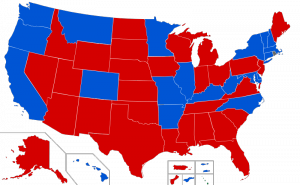Latinos, Redistricting And The Voting Rights Act
 Redistricting is set to change the face of politics across the country and for at least one organization, this means vigilance and watchfulness are a must. The following are excerpts from an interview with Arturo Vargas, executive director of the National Association of Latino Elected and Appointed Officials (NALEO) from the National Journal‘s The Hotline.
Redistricting is set to change the face of politics across the country and for at least one organization, this means vigilance and watchfulness are a must. The following are excerpts from an interview with Arturo Vargas, executive director of the National Association of Latino Elected and Appointed Officials (NALEO) from the National Journal‘s The Hotline.
Hotline: Some conservatives make the argument that the Voting Rights Act covers areas with a history of discrimination going back to the 1960s and they’re not necessarily the areas that currently have problems. Do you think that’s a fair argument?
AV: If a jurisdiction can prove that it’s no longer engaged in any discriminatory actions and has a pattern of being fair, we think the bailout provisions are there to allow that jurisdiction to not be covered. I think it’s very dangerous for anybody to be saying that we are beyond discriminatory practices in this country. I think we only need to look at the anti-immigrant sentiment that really gets translated into anti-Latino sentiment…Going into redistricting in this environment, given where these new seats are, where the increased population is, the potential for unfair treatment of Latino voters is very high.
Hotline: Besides this issue, working out tensions between Latinos and African Americans in areas that are Democratically controlled, you’re also going to have the potential for conflict in places like Texas, Florida, Arizona, even places like Georgia and South Carolina where there’s Republican control but high Latino population growth.
AV: Well, in South Carolina and Georgia it’s highly immigrant. It’s very different than the population increase we saw in a place like Nevada. We saw how effective Latino voters could be in Nevada. We saw how effective they could be in a statewide election, where [Senate Majority Leader Harry] Reid (D) to everybody’s surprise won by 5 points. There is that difference. Nevada certainly has the opportunity to create a Latino-effective voting district, much more so than Georgia or South Carolina. But what we need to look there, just because you don’t have an effective Latino voting population shouldn’t give legislators license to gerrymander those communities. This is where people need be able to present evidence about communities of interest, and if a community is Latino and shares a language, shares a culture, that should define it as a community of interest.
Very interesting stuff, to see the rest of the interview, click here.
[Image Courtesy FXXX]
